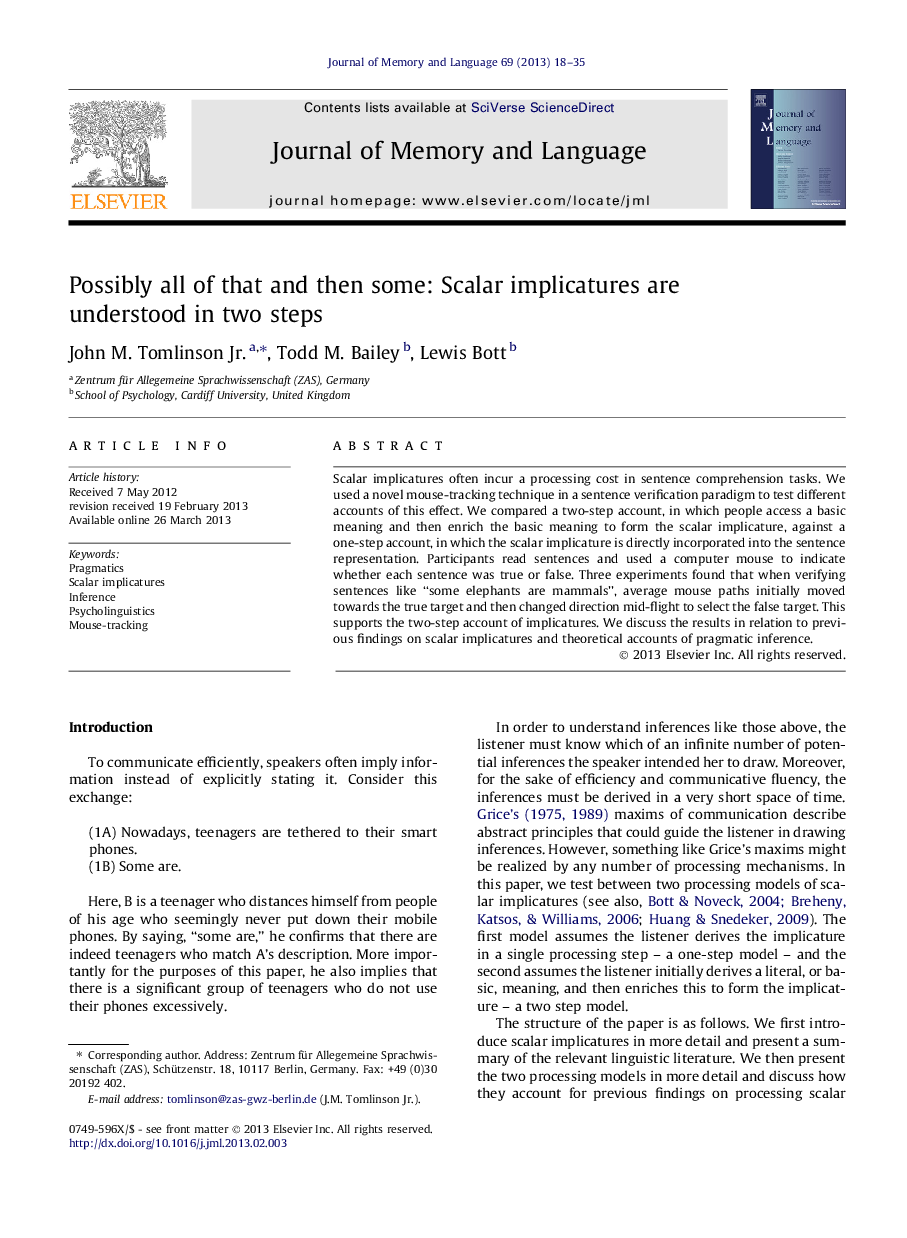| Article ID | Journal | Published Year | Pages | File Type |
|---|---|---|---|---|
| 931910 | Journal of Memory and Language | 2013 | 18 Pages |
Scalar implicatures often incur a processing cost in sentence comprehension tasks. We used a novel mouse-tracking technique in a sentence verification paradigm to test different accounts of this effect. We compared a two-step account, in which people access a basic meaning and then enrich the basic meaning to form the scalar implicature, against a one-step account, in which the scalar implicature is directly incorporated into the sentence representation. Participants read sentences and used a computer mouse to indicate whether each sentence was true or false. Three experiments found that when verifying sentences like “some elephants are mammals”, average mouse paths initially moved towards the true target and then changed direction mid-flight to select the false target. This supports the two-step account of implicatures. We discuss the results in relation to previous findings on scalar implicatures and theoretical accounts of pragmatic inference.
► We investigated why scalar implicatures are costly. ► We tested two-step and one-step processing models. ► We compared mouse trajectories across interpretations. ► Mouse trajectories initially deviated towards literal meanings. ► Scalar implicatures involve two processing steps.
